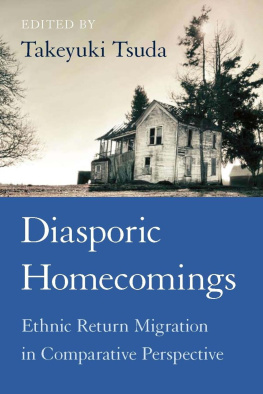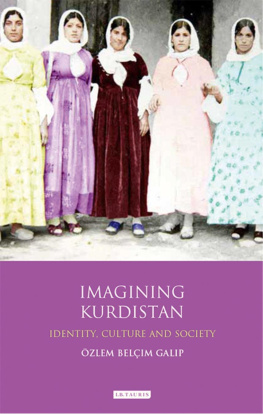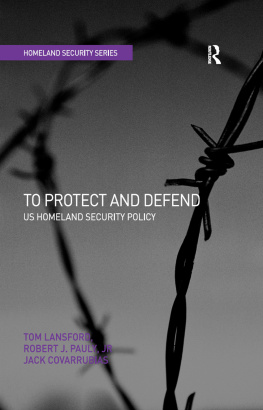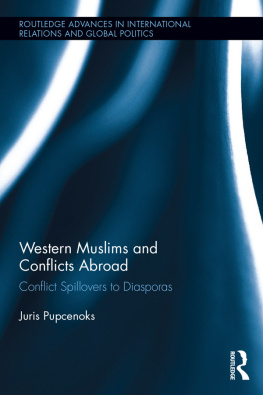DIASPORAS AND HOMELAND CONFLICTS
Research in Migration and Ethnic Relations Series
Series Editor:
Maykel Verkuyten, ERCOMER
Utrecht University
The Research in Migration and Ethnic Relations series has been at the forefront of research in the field for ten years. The series has built an international reputation for cutting edge theoretical work, for comparative research especially on Europe and for nationally-based studies with broader relevance to international issues. Published in association with the European Research Centre on Migration and Ethnic Relations (ERCOMER), Utrecht University, it draws contributions from the best international scholars in the field, offering an interdisciplinary perspective on some of the key issues of the contemporary world.
Also in series
Suspect Families
DNA Analysis, Family Reunification and Immigration Policies
Edited by Torsten Heinemann, Ilpo Heln, Thomas Lemke,
Ursula Naue and Martin G. Weiss
ISBN 978 1 4724 2424 2
Employers, Agencies and Immigration
Paying for Care
Edited by Anna Triandafyllidou and Sabrina Marchetti
ISBN 978 1 4724 3321 3
Full series list at back of book
Diasporas and Homeland Conflicts
A Comparative Perspective
BAHAR BASER
Coventry University, UK and Stockholm University Institute for Turkish Studies (SUITS), Sweden
First published 2015 by Ashgate Publishing
Published 2016 by Routledge
2 Park Square, Milton Park, Abingdon, Oxon OX14 4RN
711 Third Avenue, New York, NY 10017, USA
Routledge is an imprint of the Taylor & Francis Group, an informa business
Copyright Bahar Baser 2015
Bahar Baser has asserted her right under the Copyright, Designs and Patents Act, 1988, to be identified as the author of this work.
All rights reserved. No part of this book may be reprinted or reproduced or utilised in any form or by any electronic, mechanical, or other means, now known or hereafter invented, including photocopying and recording, or in any information storage or retrieval system, without permission in writing from the publishers.
Notice:
Product or corporate names may be trademarks or registered trademarks, and are used only for identification and explanation without intent to infringe.
British Library Cataloguing in Publication Data
A catalogue record for this book is available from the British Library
The Library of Congress has cataloged the printed edition as follows:
Baser, Bahar.
Diasporas and homeland conflicts : a comparative perspective / by Bahar Baser.
pages cm. (Research in migration and ethnic relations series)
Includes bibliographical references and index.
ISBN 978-1-4724-2562-1 (hardback) ISBN 978-1-3155-7701-2 (ebook) ISBN 978-1-3171-5129-6 (epub) 1. Immigrants Political activity. 2. Transnationalis Political activity. 3. Emigration and immigration. 4. Social conflict. I. Title.
JV6124.B37 2015
305389435043dc23
2014033808
ISBN 9781472425621 (hbk)
ISBN 9781315577012 (ebk-PDF)
ISBN 9781317151296 (ebk-ePUB)
To my parents
Nursel and Nihat Baser
Contents
Foreword
We still live in a world of nations, but globalization and migration are changing the nature of nations and making them transnational. Some three per cent of the worlds people now live outside their countries of origin. Communities of migrants living in foreign countries have always been significant but are becoming more so as their relative size grows. They are important in the exchange of goods, services, ideas and culture between societies, and they often play an important political role, both in the host country and in the homeland.
Migrants arrive in host countries for many reasons, but one particular trigger is armed conflict. Contemporary conflicts generate waves of displacement and refugees, frequently from both sides of a conflict. So migrant communities are complex and often fluid societies, frequently marked by divisions and disagreements. Their politically active members are prone to continue the political conflicts that led to their displacement from afar. They do so both by playing an active role in homeland politics and sometimes by continuing the conflicts in new forms in the host country setting.
Previous research has documented the significant role that diasporas play in homeland politics. The situation of the community of migrants in another country creates opportunities for political mobilization and raising resources outside the control of the home government. As a result some diaspora groups play a leading role in homeland conflicts. This can include financing and fuelling armed resistance, using the opportunities of contact with host governments, the media and civil society organizations for lobbying and advocacy, and more rarely undertaking dialogue and peacebuilding initiatives.
The international community is aware of the importance of migrant communities, particularly because the remittances they send home to their countries of origins often exceed governmental aid. Development agencies have become aware of the role that diasporas can play in financing development, and hence potentially preventing or mitigating conflict. But there has been less awareness of how host country policies can shape the structure and behaviour of diaspora communities.
This book makes an important contribution by demonstrating how important the host country is in shaping and structuring the way diaspora communities behave. In a careful comparison of second-generation Turkish and Kurdish communities in Sweden and Germany, Bahar Baser offers a compelling explanation for why imported conflicts between Turks and Kurds have become violent in Germany and have not in Sweden. The more inclusive Swedish policy, accompanied by recognition of different ethnic communities and encouragement to pursue political aspirations in line with Swedish values, has tempered the way the communities mobilize and act. In Germany, Turkish and Kurdish communities not only feel rejected but suffer discrimination and sometimes direct attacks. Kurds in Germany are a minority within a minority. This situation has induced violence between the two groups and as well as active involvement in support for violent conflict behaviour in Turkey.
Bahar Basers meticulous comparative study of the second-generation diaspora in two countries will make an important contribution to diaspora studies. By indicating how the host countries themselves play a powerful role in shaping the kind of diasporas they end up with, she points the way forward for future research and policy. As such, her work deserves the attention of policy-makers, scholars, students and all who are concerned with these topical manifestations of conflict and globalization in international affairs.
Hugh Miall
Emeritus Professor of International Relations
University of Kent
Acknowledgements
The years I have spent working on this book have been some of the most exciting years of my life. I am indebted to many people who walked with me during this journey, and advised and assisted me. First and foremost, I would like to thank my doctoral supervisors Professor Rainer Baubck and Professor Friedrich Kratochwil for their valuable guidance and advice. I spent amazing four years at the European University Institute completing my PhD studies and their presence made it all the more special for me. Without their support, this book would not have been possible. I thank them for their patience and for reading numerous drafts the feedback they gave me was immensely valuable. I also thank Professor Thomas Faist and Professor Carl-Ulrik Schierup for taking part in my doctoral jury and for their constructive and useful comments which guided me while I was writing this book.









